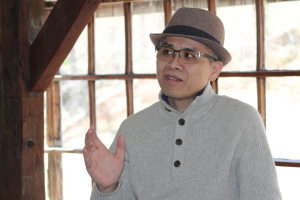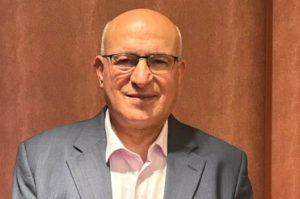ACLU Sues Wash. Public Library for Restricting Access to Porn
A lawsuit filed by the American Civil Liberties Union (ACLU) against a Washington state library district that blocked access to pornographic and other websites is raising the question of what kind of content should be allowed in public libraries.
The North Central Regional Library District (NCRL) is defending its Wenatchee public library for barring access to pornographic content on its computer's search engines, although the ACLU, a nonprofit organization, claims that such censorship restricts college students from working on assignments and other library patrons wanting to access legal content.
"We believe having pornography in public places hurts our ability to accomplish our mission (of reading and learning)," said Dan Howard, director of public services at the library, Seattle's King 5 TV reported.
"We cannot allow any access to an Internet site that would subvert our Internet filter," he added, explaining why some popular websites, like Google Image search and YouTube, had also been restricted.
"If we take the filter off there is nothing between us and someone who wants to use a library computer to access child pornography or other illegal and inappropriate material," explained Dean Marney, Director North Central Regional Library District, in a statement.
"We are a publicly funded institution. It is crazy to think that we should be required to use tax dollars to allow open access to Internet pornography or to become illegal casinos. Removing the filter is unfair to the people who support our community libraries, jeopardizes the safety of kids, and creates a hostile environment for our patrons and employees," he added.
Not all Washington public libraries adhere to this policy, however - the Seattle Public Library, for example, allows patrons to watch graphic pornography in full public view on its computers, even after complains from mothers who say their children have been exposed to such material, The Seattle PI revealed. The Seattle branch only restricts Internet access to children.
The ACLU makes the argument that federally funded libraries should disable their filters upon the request of an adult. According to Duncan Manville of Savitt Bruce & Willey LLP, who is working with the ACLU, the organization is acting on behalf of an artist who cannot access his photo gallery online, a college student and a gun magazine.
"The policy impacts residents in a largely rural area who rely on the public library for Internet access. The NCRL has set its filter to block access to an ever-shifting list of websites," a statement by the ACLU reads.
The list of blocked websites include that of an organization encouraging individuals to commit random acts of kindness (www.kindnessusa.org); the Seattle Women's Jazz Orchestra website; and the website of an organization encouraging women to carry to term by creating "a supportive environment for women in crisis situations to be introduced to the love of Christ" (www.acceptpregnancy.org).
"In addition to refusing adult patrons' requests to disable the filter, the NCRL refuses to commit to promptly unblocking individual websites for adults and refuses all adult requests to unblock websites containing constitutionally protected material that the NCRL deems harmful to minors," the statement adds.
Despite the fact that other Washington state libraries allow access to pornographic content and other such websites, public opinion, at least according to one source, is firmly behind the North Central Regional Library District's decision to block certain websites on its search engines.
Based on an MSNBC poll on the issue, currently 27,172 people, or 83.6 percent of respondents, voted that libraries, even publicly funded ones, should be able to restrict what patrons are allowed to see.
Richard Thompson, President and Chief Counsel of Thomas More Law Center, a not-for-profit public interest law firm dedicated to the defense and promotion of the religious freedom of Christians, shared with The Christian Post in an email that he is strongly opposed to forcing public libraries to show pornography.




























